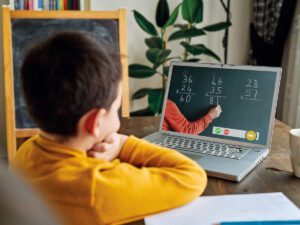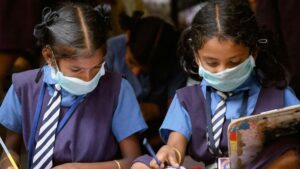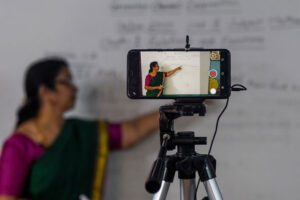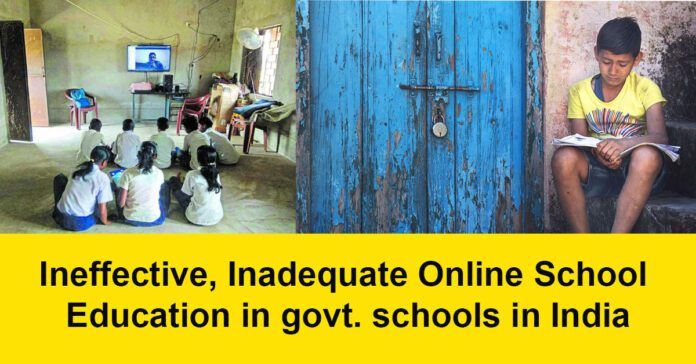A study conducted by the researchers at Azim Premji University have given a report that approximately 60% of students at the government schools studied are not being able to attend classes regularly.
The report presented by the researchers at Azim Premji University, Bangalore, has found that online education is ineffective and inadequate for school children’s development. The researchers surveyed at 1,522 teachers (in 1,522 schools) and 398 teachers across five states.
The report, is titled ‘Myths of Online Education‘,. The research focused on schools that cater to children from economically marginalized families. They tried to understand how the children are able to cope up with the changes which have come after the pandemic. Most of the teachers and parents are eagerly waiting to restart in-person education as soon as possible.
Of the teachers surveyed, more than 80% of them expressed that they were not able to build an emotional connection with students because of the changed medium. More than 90% feel that assessing students properly online is impossible.

In addition to this, 50% of the teachers expressed that children weren’t completing their homework assignments online, as few needed help too. Hence to cope up with their pace they had to slow down the process, which would have been faster otherwise.
It has become difficult to understand if children are able to follow or not, as the teaching process has become mostly a one-way communication. Teachers make PPTs and share pictures and videos. Teachers are also feeling bad that majority of the students are not able to participate in the class. They are apprehensive of how those children would cope up.

Few teachers expressed that in spite of them sharing some readings on WhatsApp and some homework, only few children do and send back. Most of the children have not bought textbooks this year and some of them have as they have borrowed from their siblings or neighbors.
On the other hand, 70% of the parents are dissatisfied with online classes and the study notes as they feel that they are not effective for the learning of their children.
The online classes have not only impacted the quality of education but also created serious hurdles for students. Almost 60% of students, are not being able to attend classes regularly. Few of the factors are “absence of a smartphone, multiple siblings sharing a smartphone, difficulty in using the Apps for online learning, etc.”

The issues regarding children with disabilities are exacerbated further, especially for those with visual and hearing impairments.
The research says that only 20% parents have smartphones. Majority of them are laborers. It is difficult for children to access the content as parents go for work in the morning and come back in the evening. Parents who have smartphones do not like their children to use the phone as they think it is not good for children and can hamper values. The connectivity is very poor too.

On the other hand the teachers themselves are not comfortable using the online platforms and have not received the requisite training to use the technology.

A cumulative report has been found that online education is likely to increase existing inequalities in access to education. The only solution should be to reopen the schools in a phased manner, but researchers have different views on this




